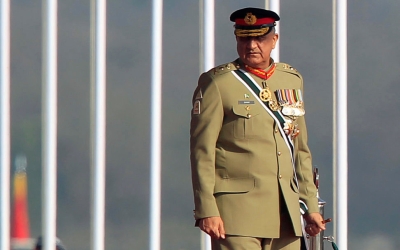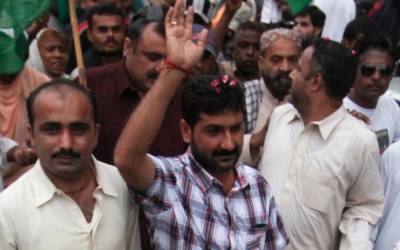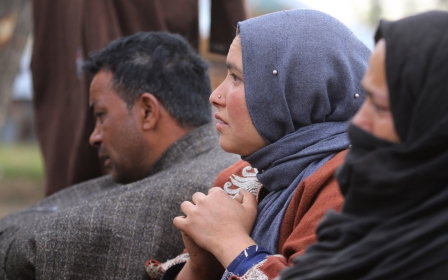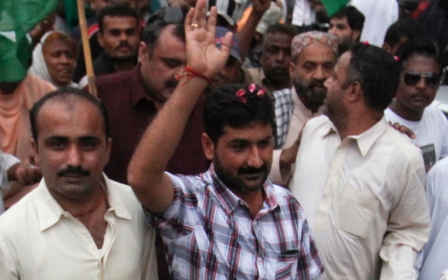Is Pakistan ready to recognise Israel?
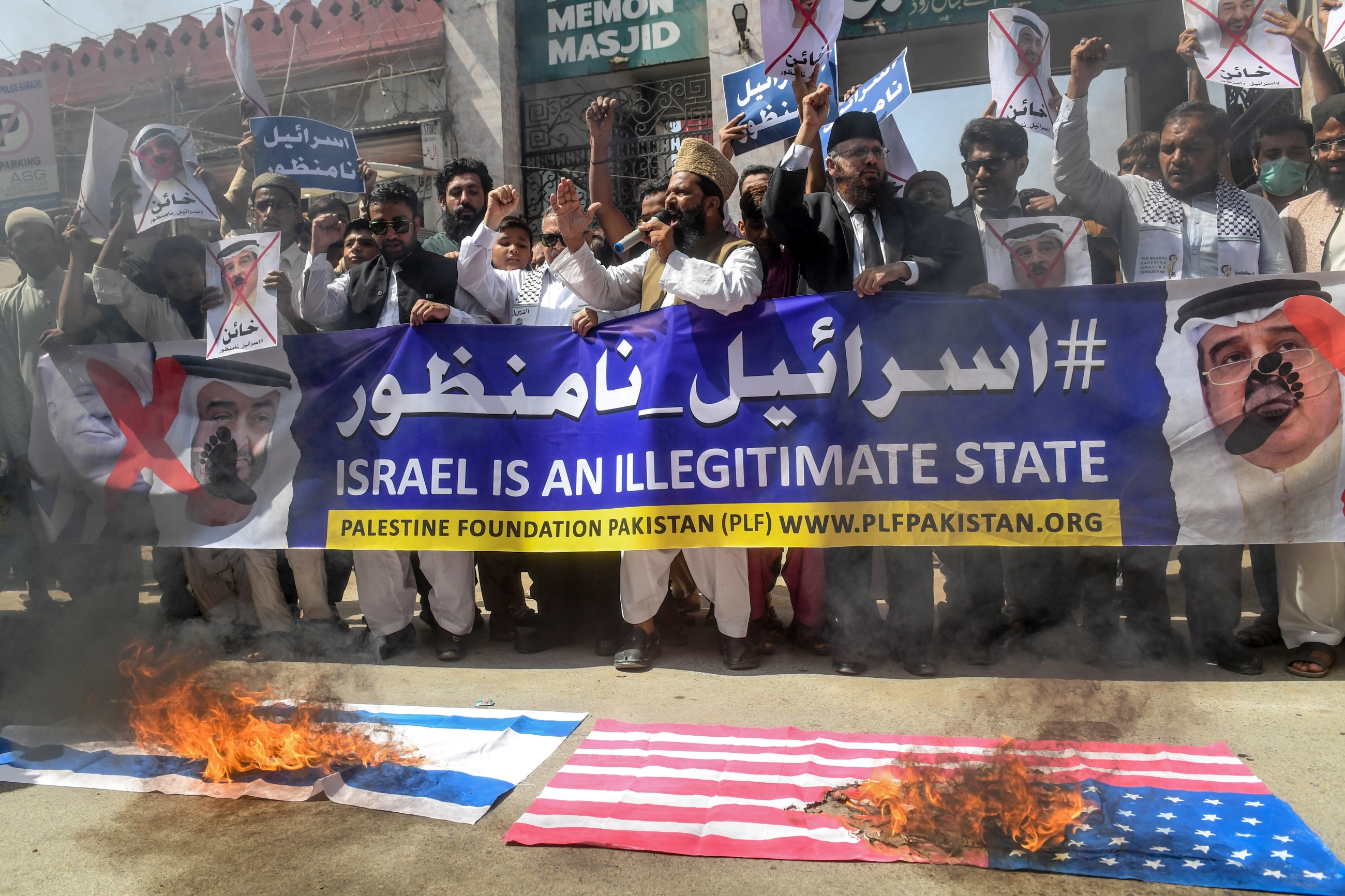
With a number of Gulf Arab countries, including the United Arab Emirates (UAE) and Bahrain, moving to normalise relations with Israel, some observers are asking: could Pakistan be next?
Pakistan is one of Saudi Arabia’s closest allies, while Riyadh has been a key player in softening Israel’s image, a stance which contributed heavily to the recent signing of the so-called Abraham Accords between Israel, Bahrain and the UAE.
The Saudi-Pakistan alliance is heavily leveraged, with the latter often beholden to the wishes of the kingdom due to Islamabad’s current financial concerns.
Pakistani Prime Minister Imran Khan recently told a local news channel that his country would not recognise Israel due to the plight of the Palestinians, adding that even if the “whole world wants to recognise Israel, Islamabad would not do so”.
Arguably the biggest obstacle for Khan would be the myriad religious groups in the country, who hold a great deal of power and are implacably opposed to any recognition of Israel.
“The biggest religious groups are against Imran Khan. If the government ever decides to recognise Israel, the pressures from the religious authority will be a considerable challenge," said Mohammed Israr Madani, president of the International Research Council for Religious Affairs in Islamabad.
"The sectarian issues in the country are significant, coupled with the Iranian and Saudi tensions. Pakistan will ultimately wait and see what Saudi Arabia does.”
High-profile backing
However, Khan’s public condemnation of the deal contrasts with Pakistan’s covert meetings and information-sharing with Israel.
The landing of an Israeli jet in Islamabad in 2018 forced the Pakistani government to issue repeated denials of a visit by an Israeli delegation.
Additionally, several Pakistani leaders, from former President Pervez Musharraf to current Foreign Minister Shah Mahmood Qureshi, have called for better relations with Israel.
In 2005, Musharraf made a bold public statement by shaking hands with then Israeli Prime Minister Ariel Sharon in Istanbul.
Qureshi, meanwhile, spoke to Israeli news platform Maariv in 2019, where he was quoted as saying: “We wish all the best for Israel. We have many friends in the region and we would like you to join them."
However, Ayesha Siddiqa, a research associate at the SOAS South Asia Institute, said any recognition would be a very difficult challenge internally due to the country's "chaotic democracy".
"The reality is politically the religious clergy have a lot of influence," she said.
Saudi strains
The erstwhile rock-tight relationship between Saudi Arabia and Pakistan has been strained in recent years.
A recent political spat between the two nations centred on the kingdom's lack of support on the question of Kashmir.
The move by India's government last year to remove the special autonomous status granted to Jammu and Kashmir provoked fury from Pakistan, which has been lobbying the international community to condemn India's actions.
'The Pakistani military has been keen to develop relations with Israel … in order to challenge the strong bilateral ties between the US and India'
- Ayesha Siddiqa, analyst
However, the response by Saudi Arabia to the issue - long seen as a pivotal one for the global Muslim community - was seen by Pakistan as lukewarm, leading to condemnation by the country's foreign minister, who warned that he could no longer "indulge in diplomatic niceties" with the kingdom over the issue.
Khan and other Pakistani leaders have also been keen to draw parallels between the situation in Kashmir and the situation in the occupied Palestinian territories - if Pakistan was to engage with Saudi instructions and engage with Israel, it could end up undermining its stance on Kashmir.
Nevertheless, the Pakistani military, who hold enormous power in the country and facilitate a number of operations in Saudi Arabia, would benefit from an alliance with Israel.
“The Pakistani military has been keen to develop relations with Israel, the primary reason being it would significantly improve relations with the US, in order to challenge the strong bilateral ties between the US and India," said Siddiqa.
Iran disagreements
A crucial aspect of the normalisation accords has been the need by a number of Middle Eastern countries to present a united front against what they see as Iran's aggressive foreign policy.
Both Israel and the majority of the Gulf states see Iran as their primary enemy and this has helped facilitate the alliance.
In comparison, neighbouring Pakistan and Iran have continued to enjoy cordial relations and cooperate on a number of issues.
In the last month, however, Pakistan has faced significant anti-Shia protests across three provinces, with a turnout in the tens of thousands in Karachi alone.
Some have accused the state of helping to organise the protests as a means of sending a message to Iran. A number of the groups participating in the rallies have been known to receive Saudi funding to push their ideology.
Masood Ahmed Alvi, a religious activist from Islamabad affiliated with the Deobandi sect, said he had taken part in the rallies to try and push for the disassociation of Shiism from Islam.
“The majority of people in Pakistan are true believers of Islam, however the Shias are a bridge to us and the Prophet Muhammad - the Shias are copying the Islamic teachings and not fully following religious jurisprudence," he explained.
"The rallies in Multan, Karachi and Islamabad were all held for the same issue. We used to have a limited audience but now we are in our thousands who want to remove the bridge.”
Madani said there had been a shift in anti-Shia rhetoric in Pakistan, with a number of Shia groups being banned due to their relations with Iran.
"An interesting point is that the mainstream media ignored the protests; there was no coverage, which indicates the difference in state policy," he said.
"There has been significant discussion about whether this was a manouvre to influence the Saudis. However, the organisers of the event were not closely affiliated to the kingdom in recent times."
"There is confusion, however, as these sectarian groups do hold Saudi Arabia with great esteem. It remains to be seen what is the true meaning behind this event.”
Rise of Turkey
Observers have long suggested that the mantle of Sunni Muslim "leadership" may be passing from Saudi Arabia, with Turkey's President Recep Tayyip Erdogan seen as keen to position himself as the main voice on what are viewed as global Muslim issues.
Among other topics, Turkey has raised the “burning issue” of the Kashmir conflict at the UN General Assembly.

“The relations with Saudi Arabia may be entrenched; however, there are grassroot-level changes coming in from Turkey,” said Siddiqa.
Turkey has significantly bolstered its ties with Pakistan, with relations improving since the country failed to show its support for a Turkey-sponsored conference in Malaysia last year due to Saudi pressure.
The Turkish footprint in the country has recently increased, with soft-power cultural initiatives such as the television show Ertugrul, which centres around the founding of the Ottoman Empire in the 13th century and promotes ideas of Islamic transnationalism.
The show has attracted record numbers of viewers, with over 130 million Pakistanis tuning in.
With Saudi Arabia apparently failing to deliver on Kashmir and Palestine, Erdogan has enthusiastically taken up these issues which resonate on the Pakistani street.
"The very idea of connecting with Israel will only lead to revolt," said Siddiqa.
This article is available in French on Middle East Eye French edition.
Middle East Eye delivers independent and unrivalled coverage and analysis of the Middle East, North Africa and beyond. To learn more about republishing this content and the associated fees, please fill out this form. More about MEE can be found here.


